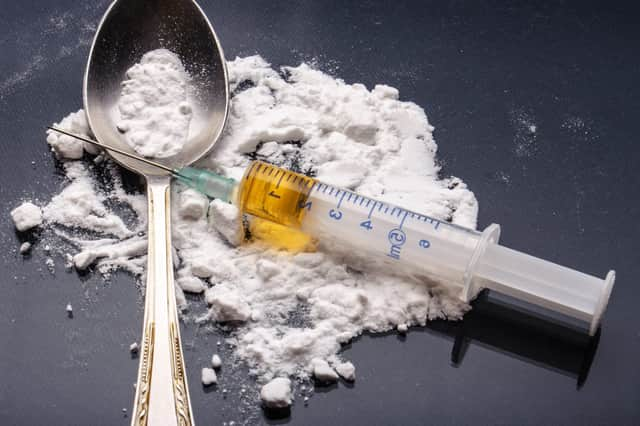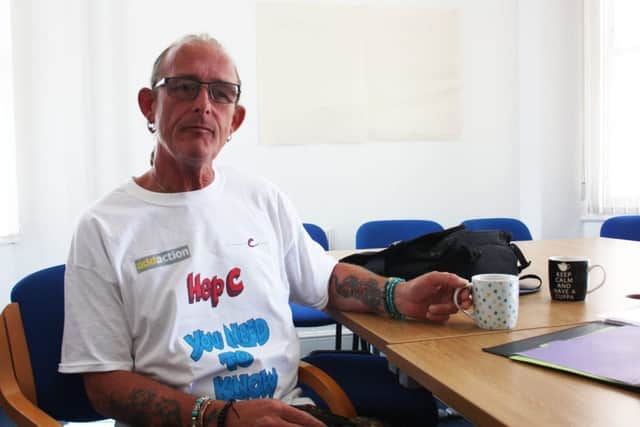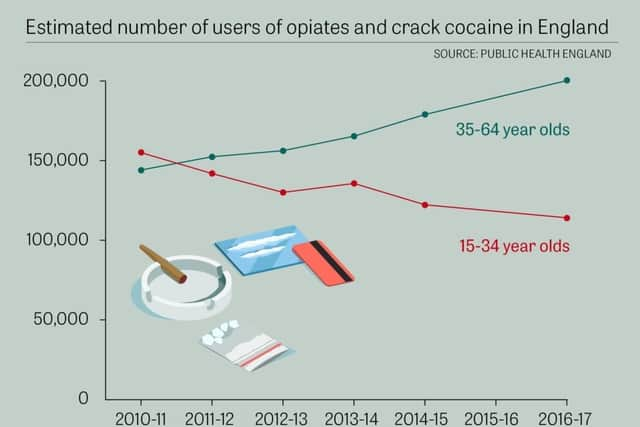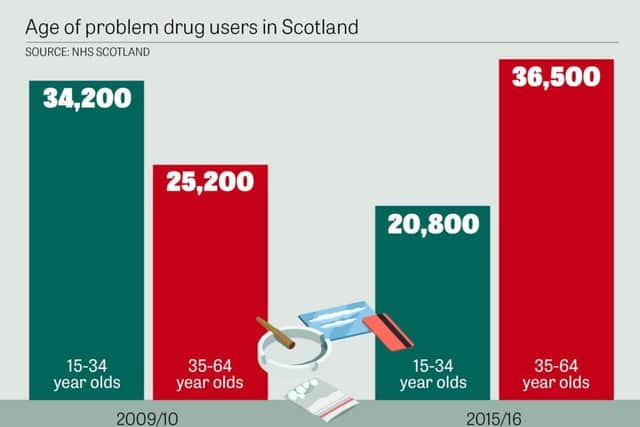Generation Trainspotting: Why heroin and crack use is soaring among the middle-aged


“I’m quite lucky to still be around,” says ex-heroin and crack cocaine user Les Chandler.
Les began taking drugs at just 13 years old and by his fifties he was on five different substances, had tried rehabilitation six times, had two marriage breakdowns and had spent time in prison.
“I was close to death,” he says.


Advertisement
Hide AdAdvertisement
Hide AdNow aged 62, he has now been clean for more than five years.
He said over the years he had tried rehab numerous times but “often walked out after a few weeks”.
“The crossing point came when the agency I was at in London asked if I would like another go at detox and rehab.
“If I’m honest, I didn’t really want to but I had a partner at that time who seemed more concerned that I did, thankfully, and she kept nagging me to go."


‘I sort of realised I was getting old’
Advertisement
Hide AdAdvertisement
Hide Ad“Once I came off this time, my thinking got clearer and I looked at what I had done to myself. I thought, I’m lucky to still be alive. It all sort of hit home.
“I sort of realised I was getting old as well. It crept up on me. When you’re using opiates you’re living in sort of a deluded world and you don’t take anything on.
“It was a bit of a shock and I think that was the turning point. If I had carried on much longer I would have died.


“You’re living in sort of a deluded world and you don’t take anything on," says Les Chandler. Image: Addaction
Advertisement
Hide AdAdvertisement
Hide Ad“And my thinking when I was still using was, I’m going to die anyway, why stop now? That was how my thinking was before I went into detox.
“When I came out I asked myself, ‘Do I really want to die?’
“Luckily there was an answer inside that said no. That little flame has grown over the past five years as I’ve nurtured it.
“There’s more to Les Chandler than drugs and dying.”
His story is not an isolated case.
Analysis of official data by the JPIMedia Data Unit shows a large rise in the number of middle-aged opiate and crack cocaine users in Britain.
Experts say people’s struggles to overcome drug problems from the heroin and crack epidemic of the 1980s and 1990s is behind this rise in the number of users in their forties, fifties and sixties, often referred to as the ‘Trainspotting generation’.
Advertisement
Hide AdAdvertisement
Hide AdAlthough Les has stopped using drugs, they have left him with a number of health problems, such as deep vein thrombosis in his legs caused by needle use. He also has a pacemaker.
Charities and health professionals warn that the risks of drug abuse heighten with age.
‘We can’t be fatalistic about this group’
“These statistics reflect a group of people who started using heroin or crack cocaine in the 1980s and 1990s,” explains Steve Moffatt, of drug and alcohol charity Addaction.
“Many of them have struggled to leave the drugs behind and have had really tough lives.
Advertisement
Hide AdAdvertisement
Hide Ad“They face higher risks of overdosing alongside health issues like lung problems and Hepatitis C.”
Moffat said that heroin and crack cocaine users are more likely to also have an alcohol problem, smoke cigarettes and have poor nutrition.
“We can’t be fatalistic about this group - and we need to do better,” he says.
“People can make a change at any point in their lives if we make sure we’re there for them with the right kind of support. That’s why it’s really important that people know where to go for help if they need it.”
Advertisement
Hide AdAdvertisement
Hide AdElinor Dickie, a public health adviser at NHS Health Scotland, says Scotland is seeing a rise in drug-related deaths and each one is a tragedy.
“No-one chooses to become drug-dependent,” she says.
“Deprivation and inequality create difficult conditions in which people live, and problematic drug use is commonly a sign of these complex social circumstances.
“The evidence shows that our first line of defence against drug-related deaths should be to reduce harm – accessing support and entering effective treatment is a key component of this.”
Hundreds of thousands of middle-aged drug abusers
There is now estimated to be more than 200,000 opiate and crack cocaine users aged 35 to 64 in England alone.
Advertisement
Hide AdAdvertisement
Hide AdThe number rose by 39 per cent in the six years to 2016/17, JPIMedia analysis of Public Health England data shows. In contrast, the number of 15- to 34-year-olds using the drugs fell by 27 per cent, to 113,785.
In Scotland, the number of people aged 35 to 64 hooked on opiates or tranquillisers rose by 45 per cent to 36,500, in the six years to 2015/16, while the number of younger users fell.
However, the same trend was not found in Northern Ireland which, health experts say, was far less affected by the heroin epidemic.
Davis Turkington, of Northern Ireland’s Public Health Agency, says: “We wouldn’t have seen much heroin use in the ‘80s largely because of the Troubles.
Advertisement
Hide AdAdvertisement
Hide Ad“People who used heroin were at risk of being targeted by paramilitaries. Many of them would have moved across to England or Scotland.”
Analysis of official data shows only one in five people (20 per cent) seeking treatment for heroin use in Northern Ireland in 2016/17 were aged 40 or over.
No data was available on the use of heroin and crack cocaine by different age groups in Wales.
‘There’s still life in you’
Les, from London, now volunteers with Addaction as a mentor for others and is about to finish a degree in counselling.
He plans to study for a masters degree in trauma.
Advertisement
Hide AdAdvertisement
Hide AdHis advice for others is that while it’s never too late to quit, “don’t leave it any longer”.
“A lot of people [aged] around 50 to 60 have resigned themselves to that life now and think, ‘I don’t need to come off, I’m nearing the end of my life anyway,’ and you just carry on.
“There’s still life in you, you can still turn it around with the right support and make something of the rest of your life,” he says.
“Support is the most important thing for anyone. I’ve tried so many times to stop and stay stopped alone but the only reason it’s worked this time, looking back, is the support I’ve got around me.”
Advertisement
Hide AdAdvertisement
Hide AdIf you would like to find out information about drug addiction support services visit, Addaction, NHS (England only) Drug addiction support services, Drugs and Alcohol NI or The Scottish Drug Services Directory.